North Africa: Nod Africa or ‘Not’ Africa?
 Egypt’s victory has become an impetus to the eradication of dictatorship. The world was watching as it took 18 days to cause a dictatorship to abandon his favorite sit. We all applaud the trials and tribulations of Egypt. There is a heightened concerned that this effect might trigger a domino effect or geometrically leap into countries governed by dictators, or oppressed by an authoritarian ruler. Indeed, while Tunisia lit the torch light, Egypt blew Africa’s trumpet to the rise for democracy.
Egypt’s victory has become an impetus to the eradication of dictatorship. The world was watching as it took 18 days to cause a dictatorship to abandon his favorite sit. We all applaud the trials and tribulations of Egypt. There is a heightened concerned that this effect might trigger a domino effect or geometrically leap into countries governed by dictators, or oppressed by an authoritarian ruler. Indeed, while Tunisia lit the torch light, Egypt blew Africa’s trumpet to the rise for democracy.
This bold step in Egypt has stimulated some Cameroonians, especially the youths and other ‘democratic fanatics,’ to use social media such as Facebook and Twitter to send messages for riots even before the elections take place in October, just because of the Egyptian victory. Others are advocating for a post-riot in case a fraud is declared. The day and locations have already been selected. Online discussions are going on, some youths say they are ready to spill blood, sighting the University of Buea riots which to them proved functional in delivering some results, the recent one which took place on the 11th of February in Buea, South-West province of Cameroon. We should not forget that, practically all silliness of conduct ascends from the imitation of those who we cannot resemble. Imitation can be viewed as a serious form of flattery. However there are no two snowmen that are identically similar. But every snowman is a unique design on its own from its creator
Let me make some points clear, and if you are interested, you can carry out your own investigative research. Firstly, the demonstrations in Egypt were triggered months ago in 2010, due to complaints about the 29-year government-imposed state of emergency which has been used to curb protests and freedom of expression, knowing fully well that 2011 was an electoral year and also calling for political reform. The other riot was around President Mubarak’s birthday, May 3-4, this time by political activists and members of parliament who were more roughly treated than the protesters in April 2010. The Western media just ignored these demonstrations, and the plea from Amnesty International was futile.
Secondly, Egyptians were not affected by what happened in Tunisia. Tunisia is the country which carried the torch light in that region. The reason for the Tunisian uprising was primarily corrupt government and deeply rooted nepotism, which was gradually eliminating the middle social class in that country. Egyptians were rioting against Western imperialism to which the government deemed more necessary than the basic needs of the Egyptians themselves, and yet all progressing businesses were seized by the government or asked to pay high dividends. Issues such as the Egypt’s Nile water rights, the persistent housing crisis, unemployment, injustice and poverty were always brought to the table and ignored by a government which preferred trading in billions with America over military and war- related products and services. Both Tunisia and Egyptian riots were fueled by provocative postings on social media sites, not in Arabic, but in English and French.
While Tunisia is ruled by the sirens of a police regime, Egyptians are under the boots of the army. The Egyptian army is more valuable, well trained, well-funded and better paid than the Tunisian army. This is just to name a few. Cameroon has a ‘soft’ presence in the international scene, not ruled by a General, and it has witnessed almost similar riots which resulted in a decrease in food and beverage prices – the carrots the government uses to appease its citizens. We have never heard of Cameroonian parliamentarians rioting, the national assembly is a dead as the graveyard.
Cameroonians should not forget that Arabs and Muslims have different motives and aspirations. We might have slippery mouths in declaring that it all boils down to democracy. True, but since democracy is not possessive but reflective of the society in which it seeks to operate, different cultural societies have different demands to prompt a ‘democratic supply.’ You can be happy for Egyptians but tell yourself this; their struggles have just begun. Their country is still ruled by the military, military officers who have no abilities or capabilities of state administration. Administering the affairs of a country is not similar to fighting war. It is similar to asking the best taxi driver to fly a plane because he has a good command of the wheel. There is a great difference between driving a taxi and piloting. There is a difference between controlling the military and governing a country.
The Way Forward – Definitely not the road that leads to Rome
We all know that to win, to become a meritorious champion, you must train. Look at heavyweight champion lifters, successful tennis players, football players, and athletes. There is constant training and training, determination, dedication, motivation and DISCIPLINE. Yes, discipline. Every champion has a coach and a supporting team. This is a fact, not a fable. Candidates should earn their stripes
Fellow Cameroonians, we live in society where it can be proven that working together is different from working with each other. We should understand that the only thing that supports our reality and constant struggle is our belief in it. We are experiencing a transitional period where change should reflect a substantial effect as to the quality of the transformation. This quality of the transformation would primarily be determined by our ways of lives, then our relations with others and our environments.
But where will the ideas and knowledge come from? Certainly not from the same architects, congress, men or parliamentarians, public relations officers or journalists, doctors, professors, scientists and priests of the old system. Not from the same strategies and implementations copied from neighboring countries, and neither from the good talks from developed countries. It is the poor, the people tagged as debtors in this democratic process, who are demanding more for excellence, not the rich nor the ‘better-offs.’ The money-makers are bent on their business, wanting to live in luxury, sometimes becoming physically or mentally idle, suppressing their ability to be exposed to pain while they welcome pleasure. They are much more concerned about making money, not for excellence.
Designs, knowledge, ideas and creativity and hence understanding will originate wherever creative and critical thinking flourish within the mind of the Cameroonian individual, societal relationships, the common place, the platform for constructive debate – wherever common people strike a balance between who says what, where, when and why, its ramifications, implications and consequences to them as individuals and to their society in general. Change shall be effective where Cameroonians struggle to discover and exploit their individuality and surroundings, their ability to assimilate and articulate ideas that are already of conscious times, embedded in everyday life. Thus, the form of change implied should be one whose outcome should maintain the functioning of active systems of communities, and at the same time sustaining continuous changes in it.
Educate people from villages to cities. Educate people on the necessity of change rather than on its obligations. Education must not necessarily come from the classroom but from common places of acquaintances; village meetings, gatherings, symposiums, rural conference, family meetings and socialization, ex-student associations, conventions, church announcements and support groups. Yes, all the pieces of the pizza put together would form the whole.
What do I think the new president should do? Gradually revamp the old systems. I would suggest two methods for guidance and gradual progression: clear and concise action planning and communal motivation. We should collectively diagnosed the mistakes of yesterday, plan for today and prepare for the joys and odds of tomorrow. Communal participation stimulates the growth of trust. It ensures that everyone is involved from villages to cities, and willing to execute the missions. Other issues worth considering and acting upon are:
- Cultural values should be preserved and respected. There is no culture which is more dominant that the other.
- People should merit their jobs. An effective analysis of performance should be established in all industrial sectors. Decentralization of job-tasks should be encouraged.
- Boost the private sector by encouraging investments and entrepreneurship.
- The banking sector should be regulated. Client savings should be a priority. Banks should set up supervisory and executive bodies, committees for constitution and laws, to control monetary policy, local and foreign investments, financial stability of institutions, payment transactions, and banknotes and coins.
- Business partnerships should be re-evaluated.
- Syndicates, think-tanks, brain trust teams should be formed in every community, even the least. There should an osmosis effect, where the strong, hardworking, intelligent and creative minds pull the least of such. The diffusion of knowledge should be encouraged through communal participatory methods.
- Encourage economic, sociology and scientific research in universities. Problematic topics should be carefully studied. National issues should be prioritized; economic issues should be listed in scale of preferences.
There should be no rush in trying to clean the old systems. No need to draw hasty conclusions out of unusual situations.
Dear Cameroonians let us open our eyes and fall short from being excited about October 2011. Do not forget. We might talk of a wind of change, but you must ask yourself how many winds of change were actually winds? Most swiftly became whirlwinds, and tornadoes, and guess what, many did not survive. Only the strong survived and only the lonely died slowly.
With the radical emergence of Honorable Ayah Paul, and the current ‘bold’ leap into the ‘Change Camp’ of the other presidential hopefuls, some Cameroonians think at last their cries in the wilderness have been heard. And who knows if upcoming cries in the wilderness might be the coming of a sand storm? It could be our ruin.
We are not looking for a truck or tractor driver to show us his expertise in commanding the wheels of these heavy automobiles, nor are we looking for a ship captain who does not know what nautical miles are, neither are we looking for the best Formula 1 speed racer nor a straight 5 A’s A-level genius, or the good doctor who is always ready to prescribe medicine to his patients. No. Cameroon like any country needs an ear which listens to the people, a mind which thinks about and alongside with the people and their societal relations, a man who is not by the people, nor who is there for the people but the leader who is WITH those citizens who think and bleed for the betterment of their country.
Think again, Dear Cameroonians:
Remember Benjamin Franklin, who said, he that cannot obey cannot command.
a) We are not looking for a leader who would spend time listening to our wants and needs. Nor are we looking for those who would promise to build bridges where there are no rivers, because no matter the intensity of the rain, it cannot change the spots on a leopard. If you want to change the spots on a leopard, cross breed it. Easy. So we need a leader who can cross-breed ideas and take us to where we have not been. Leaders do not promise. The only way to keep your word is, don’t give it up. Change comes in small doses, but we expect the wind of change to sweep across the territory.
b) We are not looking for leaders who would follow a path for guidance but those who can go where there are no paths and leave a trail.
Methinks, this is the time whereby the opposition should sit down, design strategies to gradually restore confidence to the people that as soon the presidency is changed, Cameroon would be back on track for gradual democratic development and progression.
Indeed, fellow readers, it is a long way to go, and we have to start small. It is not a matter of time; it is a matter of alertness, awareness – heightened consciousness. It is a matter of pre-preparation, organization, of momentary ideas and decisions, of looking forward while acting on feedback. It is not a moment for lamenting about problems and finger-pointing, not a moment to curse, neither cry nor being rash in behavior. We all should think together. There is no stupid proposition. The only stupid proposition is the one which was not proposed. During this journey, we shall make mistakes. Making mistakes should not be automatically viewed as a guarantee for failure. Immediate steps should be taken to correct our mistakes and transform them into successful experiences. Given certain time-frames, issues should be ranked and taken into consideration. Not family issues but issues which hinder the propping up of the society in which we live.
We live in a world where everybody wants something. No one wants to be the last to know…so, do not be the last man standing. I do hope our aspiring leaders do not become much ado about nothing persons, but persons who are serious, focused, tactical, dynamic, dedicated, disciplined and smart.
And please do not say God is in control, because I would ask you where he was when the last elections were taking place. We can pray to God and trust in God yet we would always pay cash. You can trust in God but you have to lock your car.
We do not need to imitate any other society; nor do our leaders imitate any other leader. We need to be supportive to ourselves and our leaders and uphold our cultural values as we internally cleanse ourselves. Methods, strategies, decisions and policies placed on the table and ready for implementation after considerable thinking would determine our direction. We cannot see a leaf falling and know which direction the wind is blowing. This is not about liberalization; this is about waking up from slumber and taking each horse by the reins.
Every dog has its day. Unfortunately we are not dogs. We just want to be like dogs with no tails.
Our visions of a democratic society would become clearer when we search the memory of our minds. When we spend time looking outside and expecting any form of external aid, we are dreaming, but when we look inside, we would awaken. We would grow and advance when we desire sleep in the absence of dreams.
We all hope and would be willing to participate for the development of a better Cameroon
May passion and not pedigree triumph.
Notes: I am sorry for taking off much of your time. I deemed it necessary that we know the actual issues of our Country and our own conditioning as Cameroonians. Not the big talk or big words going on in the press or from intellectuals or from the international community.
I stand reasonably corrected and very open-minded to debate and questions. Sorry for spelling errors. Sorry if you thought I offended your opinion. I am not inclined to any candidate. I am just asking Cameroonians to THINK AGAIN.
To all those who have the same thinking of ‘another Cameroonian babbling from abroad’; I very much respect your opinion. If you need to know what I have done, what I am doing and what I am planning to do for Cameroon, please mail me.
We are human beings who can think and act. Such childish thoughts should be eradicated. We should be mature.
My e mail: frank4b@hotmail.com
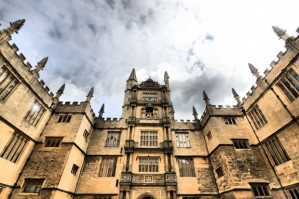
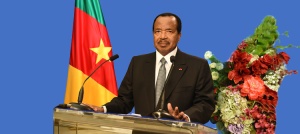

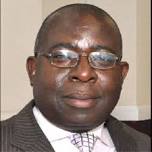
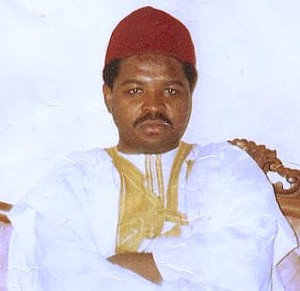
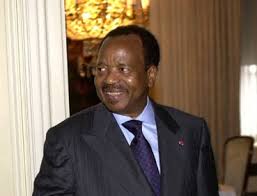
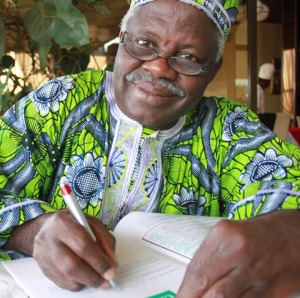
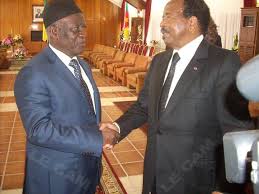
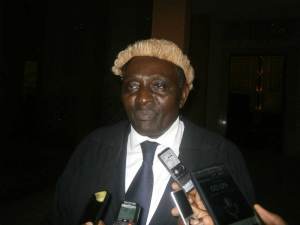
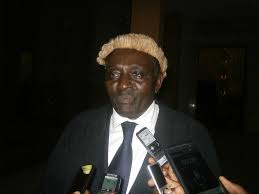
You must be logged in to post a comment.